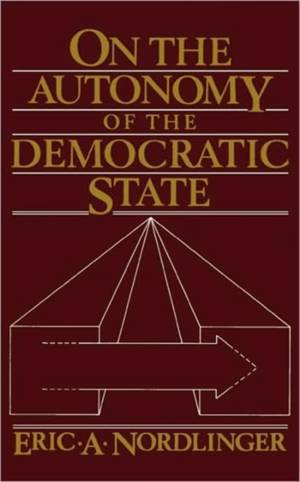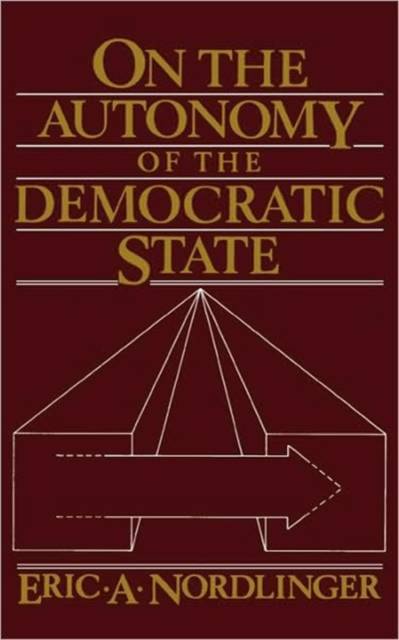
Bedankt voor het vertrouwen het afgelopen jaar! Om jou te bedanken bieden we GRATIS verzending (in België) aan op alles gedurende de hele maand januari.
- Afhalen na 1 uur in een winkel met voorraad
- In januari gratis thuislevering in België
- Ruim aanbod met 7 miljoen producten
Bedankt voor het vertrouwen het afgelopen jaar! Om jou te bedanken bieden we GRATIS verzending (in België) aan op alles gedurende de hele maand januari.
- Afhalen na 1 uur in een winkel met voorraad
- In januari gratis thuislevering in België
- Ruim aanbod met 7 miljoen producten
Zoeken
On the Autonomy of the Democratic State on the Autonomy of the Democratic State
Eric A Nordlinger
€ 61,45
+ 122 punten
Omschrijving
In this major revisionist study, Eric A. Nordlinger poses two critical questions about democratic politics. How are the public policy decisions of the democratic state in America and Europe to be explained? To what extent is the democratic state an autonomous entity, that is, a state that translates its own policy preferences into public policies?
On the Autonomy of the Democratic State challenges the central assumption of liberal and Marxist scholars, journalists, and citizens alike--that elected and appointed public officials are consistently constrained by society in the making of public policy. Nordlinger demonstrates that public officials are not only frequently autonomous insofar as they regularly act upon their own policy preferences, but also markedly autonomous in doing so even in the face of opposition from the most politically powerful groups in society: voters, well-organized and financed interest groups, national associations of farmers, workers, employers, and large corporations. Here is a book in which wide-ranging generalizations are tightly bound up with empirical examples and data. Nordlinger systematically identifies the state's many capacities and opportunities for enhancing its autonomy. These are used by public officials to shape, alter, neutralize, deflect, and resist the policy preferences and pressures of societal groups. Even the highly fragmented national state in America is shown to be far more independent of societal demands than claimed by the conventional wisdom.Specificaties
Betrokkenen
- Auteur(s):
- Uitgeverij:
Inhoud
- Aantal bladzijden:
- 256
- Taal:
- Engels
- Reeks:
Eigenschappen
- Productcode (EAN):
- 9780674634091
- Verschijningsdatum:
- 15/10/1982
- Uitvoering:
- Paperback
- Formaat:
- Trade paperback (VS)
- Afmetingen:
- 127 mm x 203 mm
- Gewicht:
- 281 g

Alleen bij Standaard Boekhandel
+ 122 punten op je klantenkaart van Standaard Boekhandel
Beoordelingen
We publiceren alleen reviews die voldoen aan de voorwaarden voor reviews. Bekijk onze voorwaarden voor reviews.









